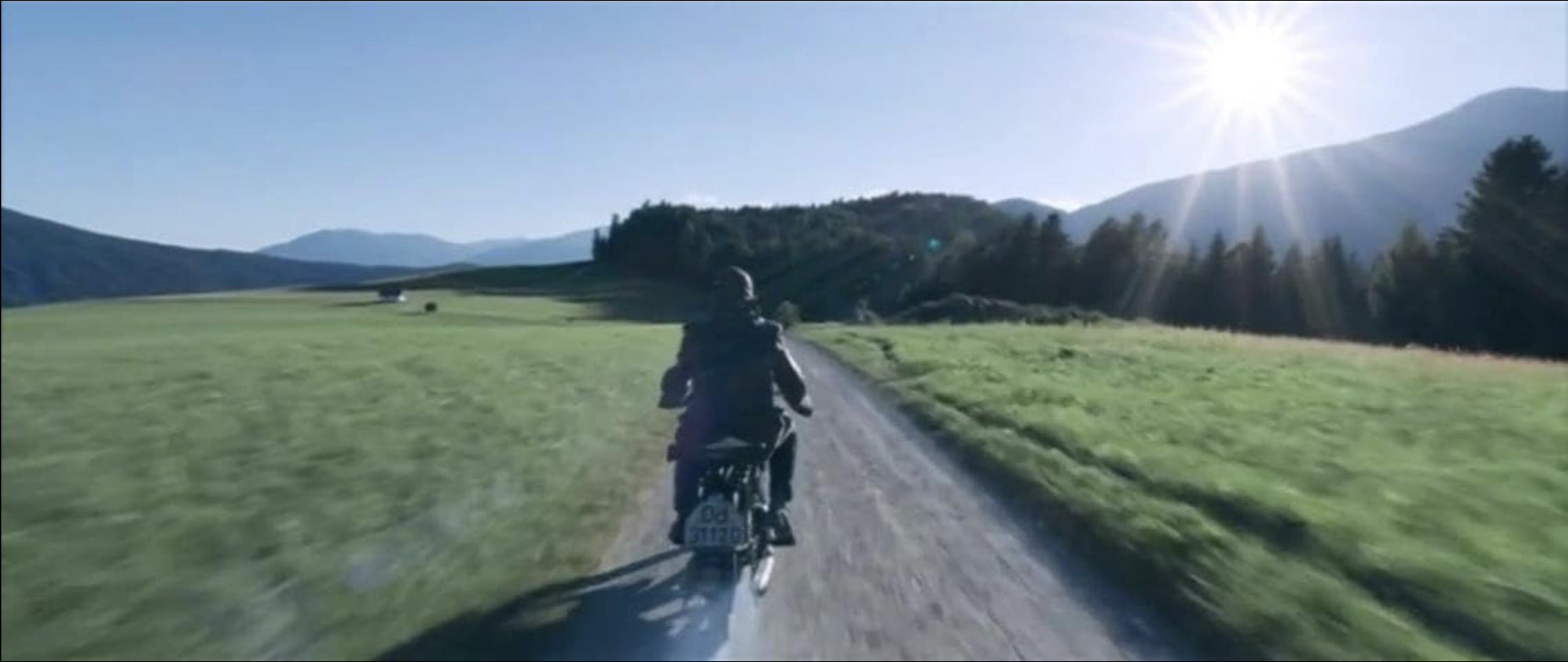
Early in Terrence Malick’s masterpiece A Hidden Life (2019), Franz Jägerstätter and his wife Franziska (Fani) sit at the kitchen table in their Austrian farmhouse and reminisce about their first meeting. Fani thinks back to Franz’s arrival in the village, and as she does we cut to a shot, seen from behind and slightly above, of Franz on his motorcycle riding on a dirt path that weaves through the fields. The shot lasts five seconds.
Two-and-a-half hours of screen time later, as the story draws to its agonizing end, Franz sits in on a bench in the courtyard of a prison, awaiting his call into the room of execution. We see a closeup of his grieving face; his eyes fill with tears; his jaw works almost imperceptibly. And then: we suddenly return to Franz on his motorcycle, riding towards the village. Quietly celestial music shimmers. Through the fields he goes and goes; trees rise up alongside the road to obscure the sun. The motorcycle continues its silent voyage, to a beginning or an ending. This time, the shot lasts a full forty seconds.
The moment is, for this viewer anyway and for several other people I have talked to, deeply moving — but indescribably so. I have hinted at what it calls to my mind by saying that what had been, at the outset, a voyage to a new beginning becomes a voyage to an ending — but I also must say that for the faithful Christian death is to be understood as a new beginning also, one as definitive as our birth. I find myself thinking about the journey home, the nostos, about those paths we must take alone, about Eliot’s “In my end is my beginning,” about anticipation, about how this delaying of the inevitable feels not like a tease but an offer of grace, an opportunity to take a breath and process what is about to happen. A thousand resonant things, really, go through my mind.
I can describe all these sequentially, and I suppose that’s not a wholly worthless thing to do, but I do not have any words to capture what it feels like to sit in the movie theater and watch those forty seconds of a man on a motorcycle riding through mountain meadows. The simultaneity of it all, the instantaneous and complex interactions of mind and heart and sensorium.
And this is the problem I am confronting as I try to write about Malick’s movies: Everything I write seems, to me anyway, to diminish those great works of art. Perhaps I should feel this way when I write about music or fiction or poetry, but I don’t. I don’t even feel this way when I write about other movies. But every sentence I write about Malick seems false to me. I keep wanting to say, Forget all this crap I’m writing, just go see the damned movie!